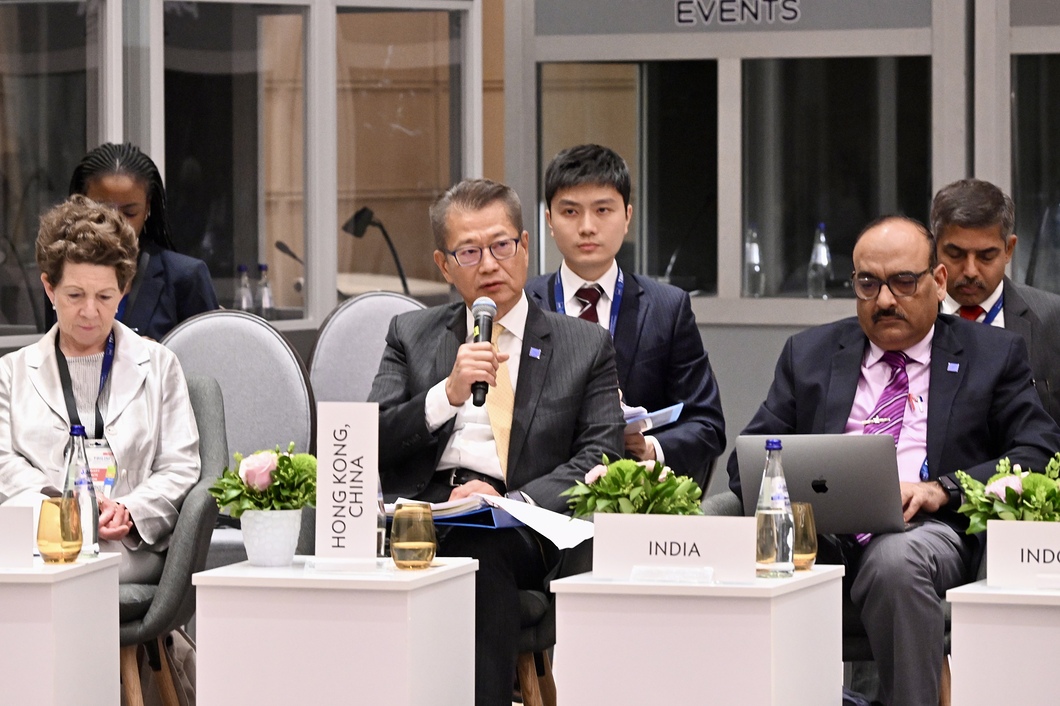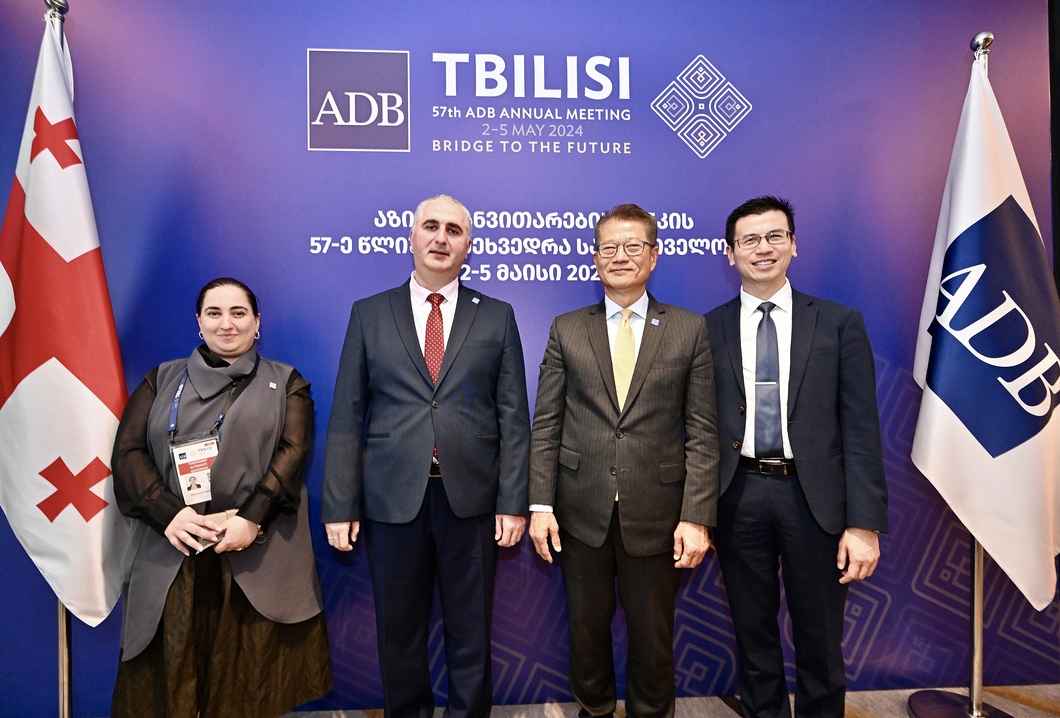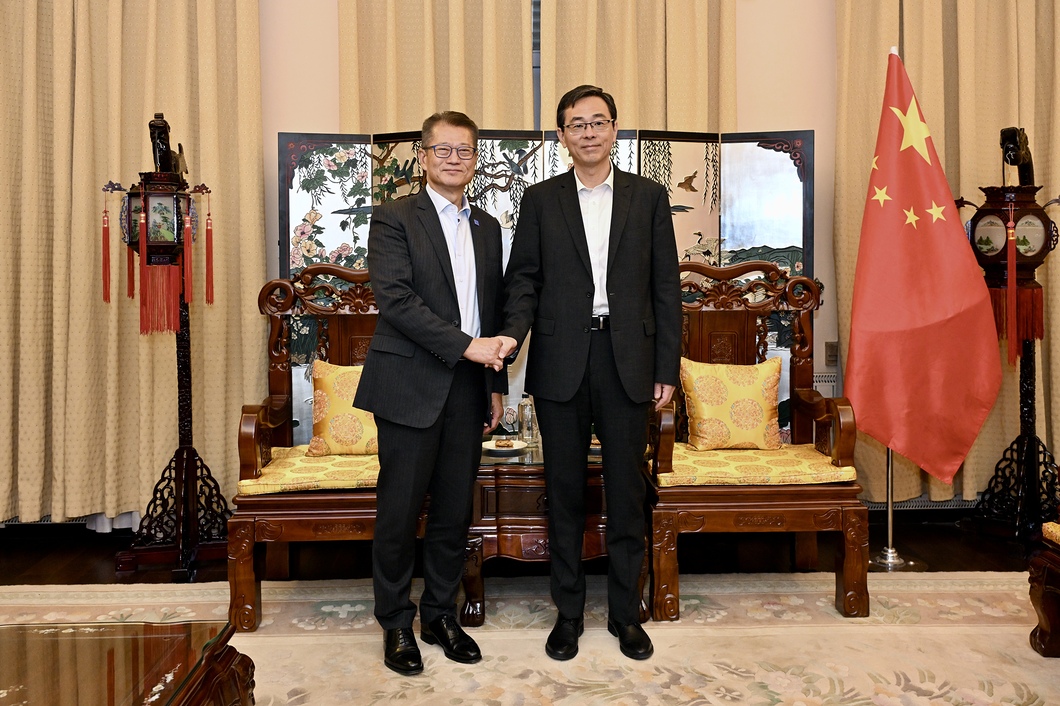Blog
Leveraging the Power of Innovation and Hong Kong’s Unique Strengths
The Hong Kong economy has maintained its growth momentum. In the first quarter of this year, Hong Kong’s gross domestic product grew by 2.7% in real terms over the preceding year, marking the fifth consecutive quarter of growth. The seasonally adjusted quarter-to-quarter growth rate also accelerated to 2.3%. Sentiment in the asset markets has also seen improvement. The local stock market has risen for nine consecutive trading days, with the Hang Seng Index accumulating a gain of nearly 14%. The average daily turnover exceeded HKD 128 billion. For the residential property market, trading activities have become more active after the removal of all demand-side management measures, and flat prices have also stabilised.
One of the main drivers of economic growth in the first quarter of this year was inbound tourism. Alongside a further increase in visitor arrivals, export of services continued to record notable growth. During this year’s Labour Day Golden Week, the number of inbound visitors was close to 650 000 in the first three days, a 25% increase compared to the first three days of the Golden Week last year. Also, external demand has been more favourable than expected, supporting improvement in the performance of total exports of goods in the first few months of this year.

|
| Attending the Opening Session of the 57th Annual Meeting of the Board of Governors of the Asian Development Bank (ADB) during my duty visit to Tbilisi, Georgia in the past few days. |

|
| Attending and speaking at the Plenary Session of Governors of the ADB. |
However, the external environment remains complicated and ever-changing, and it is fraught with uncertainties. The U.S. Federal Reserve kept interest rates unchanged last week. As the progress in the deceleration of U.S. inflation has stalled in recent months, market expectations for rate cuts this year have visibly cooled compared to the beginning of the year. A prolonged period of elevated interest rates will impact on global economic recovery, Hong Kong’s exports, local investment sentiment, and the performance of the asset markets.
The continued relative strength of the Hong Kong dollar also affects the willingness of visitors to spend in Hong Kong. Coupled with changes in the consumption patterns of residents and inbound visitors, this poses real challenges for the local retail, catering and other consumer sectors. To support Hong Kong’s economic and tourism development, the Central Government responded positively to the Hong Kong Special Administrative Region Government’s proposal to enhance the Individual Visit Scheme, and expanded the eligible cities of the scheme to Xi’an and Qingdao in February. However, in the face of changing broad trends, besides focusing on creating consumption opportunities and scenarios, such as actively promoting a mega event economy, it is equally important for enterprises to harness “new product development” and “new business models” – the two key aspects for achieving business breakthroughs during the transition phase of the consumption market. New products not only meet the evolving needs of consumers but also help create new demand and increase sales. On the other hand, new business models enable enterprises to adopt more data-based management solutions, helping them reduce costs, improve quality, and enhance efficiency. This year’s Budget has set out a number of measures to assist small and medium enterprises, including those in the food and beverage and retail sectors, with their digital transformation.
In fact, digital transformation as well as green transformation are important issues of concern to different economies around the world. We all hope to seize the opportunities to achieve leapfrogging social and economic development. This is also the focus of the Asian Development Bank (ADB) Annual Meeting this year.

|
| Meeting with Mr Masatsugu Asakawa, President of the ADB, during the Annual Meeting of the Board of Governors of the ADB. |

|
| Meeting with Mr Lasha Khutsishvili, Minister of Finance of Georgia, during the Annual Meeting of the Board of Governors of the ADB. |
These few days, I am in Georgia attending the 57th Annual Meeting of the Board of Governors of the ADB. Many delegates are interested in Hong Kong’s advancement in innovation and technology as well as development of the digital economy in recent years. They are particularly interested in the innovative products and services provided by Hong Kong start-ups. In the conferences and meetings, I also highlighted Hong Kong’s position as an international financial centre, as well as a centre for green tech and green finance. We can share with the developing member countries of the ADB our experience in various areas, such as green financing, transferring and spreading climate risks to the capital market, and making good use of green tech to achieve decarbonisation targets.
How to leverage private sector capital more effectively to take part in projects that combat climate change is a focus of the ADB Annual Meeting this year. Hong Kong has been a leader in green and sustainable finance in Asia over the past few years. In addition to enriching the range of green finance products, we are also committed to the development of and alignment with international green standards. Our high-quality and excellent professional services can also facilitate green certification of projects, thereby reinforcing investor confidence.

|
| Meeting with Mr Zhou Qian, Ambassador Extraordinary & Plenipotentiary of the People’s Republic of China to Georgia, during the Annual Meeting of the Board of Governors of the ADB. |
We just published last week the Hong Kong Taxonomy for Sustainable Finance (Hong Kong Taxonomy), which provides the industry with a clear and transparent assessment tool for green finance and facilitates the identification of green economic activities, thereby preventing greenwashing behaviour. The Hong Kong Taxonomy aligns with the two mainstream taxonomies of our country and the European Union (EU), and currently encompasses 12 economic activities under four sectors, namely power generation, transportation, construction, and water and waste management. For the next step, we will seek to expand the coverage of the taxonomy to include more sectors and activities, including transition activities.
Besides, following the proposal in the Budget to extend the Green and Sustainable Finance Grant Scheme by three years to 2027, and expand the scope of subsidies to cover transition bonds and loans, the Hong Kong Monetary Authority has recently announced the updated guideline of the Scheme. These measures will encourage relevant industries in the region to make use of Hong Kong’s transition financing platform towards decarbonisation.
Looking ahead, we will continue with our active participation in other major international or regional conferences to better showcase Hong Kong’s unique advantages to the world, and share with other places our observations and experience in various areas. In this regard, we will strive to become a bridge and make positive contributions by actively developing Hong Kong into a platform for knowledge and experience exchange.
May 5, 2024










